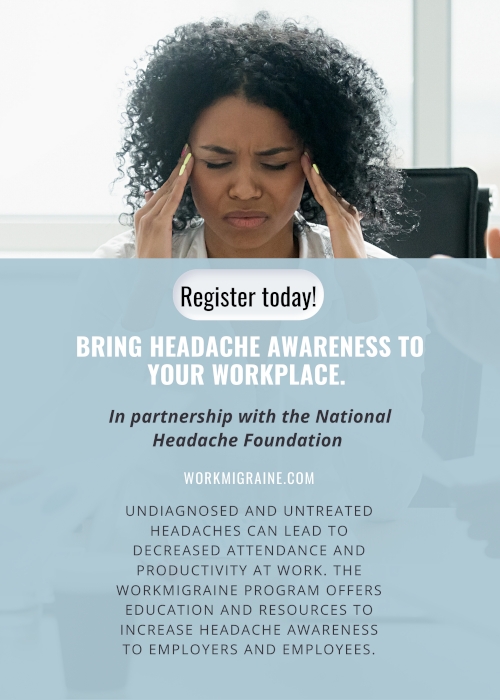Mental Health & Suicide Prevention
Tuesday, September 10th, 2019

The assault on our mental health is a daily battle we each face. Some of us fare worse than others. It’s important to understand how to cultivate good mental health. When we keep our minds healthy, we help prevent suicide. We must also be aware of the struggle in others. Mental struggles are all but invisible. It takes intentional effort to know each other well enough to sense when something isn’t right. We must express care and concern about the internal struggles of our loved ones. As a community, we must encourage and lift each other up.
Good Mental Health Habits
- Get Enough Sleep
- When we don’t get enough rest, our minds can become unhinged. Irritability, moodiness and depression set in. Read more about the correlation between sleep and mental health in an article from the Harvard Medical School website.
- Eat a healthy diet.
- Nutrition has a major effect on our energy levels and overall mental wellness. Certain foods can make us feel sluggish and glum. Other foods can actually brighten our mood and give us energy.
- Exercise
- Exercise has to be one of the single most effective tools for our mental health. Getting your heart rate up releases those feel-good endorphins that keep us upbeat and positive. Start your day with a good sweat session and you’ll feel ready to take on the world.
- Socialize
- Yes, even for introverts, socialization is important. When we keep to ourselves, we’re alone with our thoughts and create even more isolation. It’s easy to feel alone, even in a crowded room. But when we engage in real conversation with others, it broadens our perspective. When we share in each other’s struggles and victories, we are operating in a community with one another. It is in sharing our lives with each other that we begin to understand how we are all truly more alike than we are different.

- Don’t Be a “Yes Man”
- Know what healthy boundaries you need to keep in place for your mental health. Try not to wait until you’re at the end of your rope to take a break. It’s important to rest, to be alone with your thoughts and process. Some people keep so busy that they never really know how they’re feeling until they’re too far down the wrong path. You can do anything, but you can’t do everything. Knowing when to say no is an important thing to learn.
- Put Your Phone Down
- Our phones never leave our side. Hours can go by with you just scrolling through other people’s lives. There’s a constant barrage of information coming at your brain and the stimulation can be mentally exhausting. We are more connected by social media than ever before, yet most of us are realizing just how shallow and isolating that connection tends to be. Make sure you put your phone down once in a while and talk to a human face to face. Turn your phone off and put it in a drawer for an hour or two and feel the freedom of not checking it every few seconds.
- Get Outside
- There’s something very grounding and clarifying about being in the outdoors. Going for a quiet walk around the neighborhood or watching the sunset can do wonders for your mental well being. Don’t underestimate the simplicity of getting more oxygen to your body by being outside. Observing how nature is functioning around you is a great reminder that the world is bigger than you and that everything will be all right.

Signs of Poor Mental Health
- Isolation
- Staying in a never going out. Insisting that you have too much to do when really you just can’t bear to be around others. You may even hold the belief that you’re the only one who knows what you feel like. No one else has felt the way you do. No one will ever understand.
- Depression
- When depression sinks in, every day it’s a struggle just to function. Getting out of bed is a huge accomplishment. Sadness or general indifference permeates every single day.
- Comparison
- Constant comparison with others can make us feel lacking in every area. Even though we know that what we see on TV, movies, or even on social media is curated to look a certain way. We are never seeing the full story. Yet mentally we may begin to feel as though we can never measure up. When we start to compare we become focused on what we lack, instead of what we have. We find our relationships, homes, clothing, finances, all come up short when compared to what we see.
- Hopelessness
- Feeling as though things will never get better, that we’ve screwed up too much or missed our chance perpetuates feelings of hopelessness. The truth is that there is always hope. But when you are caught in a cycle of hopelessness, that can be difficult to believe.
Poor mental health can easily lead to a thought process that may end in suicide. If you have thought about ending your life or believe the world would be better without you, please reach out to someone. Let them prove you wrong. Come up with a safe action plan to protect you from those dark thoughts. You are important and valuable and we need you here.
How Can We Help?
If you or someone you know is showing signs of poor mental health, here are some steps to take. Being equipped with the right expectations and resources for our mental health and the mental health of others is a starting point for winning the fight against Suicide.

- Be Bold. Ask Pointed Questions.
- Don’t be afraid to be awkward or embarrass yourself by asking someone if they’re planning to commit suicide. Their life may depend on your boldness. Isn’t that worth more than what someone may think of you? Ask exploratory questions: Have they made a plan to do it? Do they have access to the resources they need? Let them know you are coming to help them or encourage them to go to someone they feel safe with.
- Talk About It.
- Share your stories. Not everyone has the signature signs and symptoms. Sharing the stories of loved ones you’ve lost to suicide or how you overcame an attempt on your own life can potentially save the life of someone else.
- Be present and aware.
- Don’t let people slip through the cracks. Learn people’s names and let them know they’re valued by you. You never know what a smile or kind word may do in the life of someone else. It could mean the world to someone starved for love and attention.
- Be others-focused.
- We all have our own issues we are working through. When we focus on our problems, they tend to grow. When we look outside ourselves to the needs of others, we not only help them. We help ourselves in the process. If each of us focused on the well being of the person next to us, we’d all be taken care of. It has to start somewhere. Why not with you?
- Forgive Yourself.
- If it’s too late for someone you love, know that you’re not at fault. You can do everything “right” and still lose someone. Give their life more meaning by sharing their stories and helping someone else. Be kind to yourself and honor their memory.
For further information or assistance visit our wellness observance page or call 1-800-273-8255 to talk to someone any time of day. An online chat is also available to you right now.
How to Age Gracefully
Friday, September 6th, 2019

Age is just a number, they tell us. But it seems we’re getting older, younger and younger. Some twenty-somethings feel as though they’re pushing sixty. How do we keep our minds and bodies in tip-top shape as we age? Are the aches, pains and ailments just inevitable? Let’s discuss how to age gracefully. Hopefully, you’ll find a new lease on life in the paragraphs that follow.
Eat A Balanced Diet
This first tip is a simple one. It’s used so frequently, it may seem trite. But the simplicity and importance of eating a balanced diet cannot be overestimated. With all the fad diets and extreme restrictions out there, balance can be hard to come by. The fads will come and go. There is no one food group that can be termed “bad.” Most everything has a benefit in moderation.

Don’t deprive yourself of good foods that you like to eat. Just eat more fruits, veggies, lean meats and whole grains. Even carbohydrates are important. It can be tempting for weight loss to eliminate carbs almost entirely. Just like carbs are important, many healthy fats are rich in Omega vitamins essential for good heart and brain health.
Some people do have to monitor carbs more closely for other health concerns. But an extreme diet can deprive your body of nutrients it actually needs. While you may experience weight loss in the short term, what’s most important? Losing weight quickly, right now? Or sustaining a healthy, balanced diet over time that will lead to a healthy weight in addition to a long healthy life.
Move Your Body

Studies have shown that older adults who maintain active, healthy lifestyles, are 60% less likely to develop dementia. The way you treat your body affects your mind, just as the way you treat your mind affects your body. The mind-body connection is a powerful thing.
Think Youthful Thoughts
Our mental health contributes much more to our overall health than you might think. There are many who are dead long before their bodies are buried. Don’t be one of them! Live your life to the fullest. Make plans, set new goals, dream new dreams. As long as you have breath you have a purpose to fulfill. Meditation or Prayer has even shown to improve age-related memory loss. Meditation can contribute to your physical and emotional health by decreasing stress and improving mental clarity.

Invest in our youth! Mentor someone younger than you. Volunteer with after school programs or be a big brother/sister. Being around young people keeps you dialed in and aware. We tend to be most like the people we spend time around. Keeping our associations varied opens our minds to learning new things. Learning new things keeps our minds healthy.
Sharpen and challenge your mind to think. When you cease to learn, you cease to truly live. Take up a new hobby or audit a college course. An endless supply of knowledge can be found simply by taking up the habit of reading. When you continue to utilize your thinker, you guard yourself against dementia and strengthen your mind.
Wear Your Sunscreen
Never underestimate the impact of a good skincare routine, both for men and women. Begin your preventative care as young as age 25. The damage done to our skin only shows up about ten years after it occurs. Be diligent in your skincare routine and you will see a marked difference in your youthful appearance.

For women, it’s important to use a cleanser, toner, eye cream, treatment product (anti-wrinkle or brightener) moisturizer, and exfoliate regularly. Men tend to exfoliate and moisturize the lower portion of their face through shaving. They show their age on their forehead and around their eyes. Daily sunscreen in addition to an equally good skincare routine is just as important for men.

